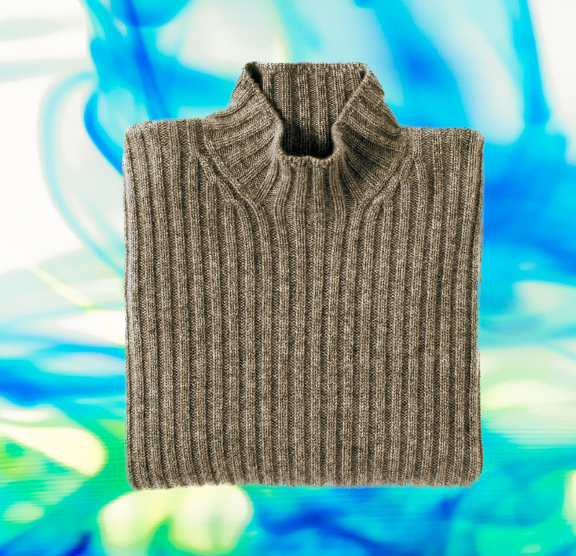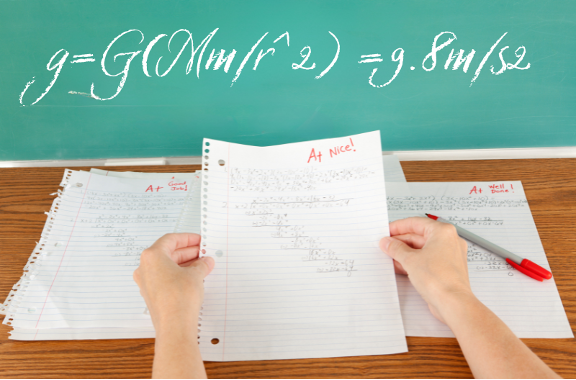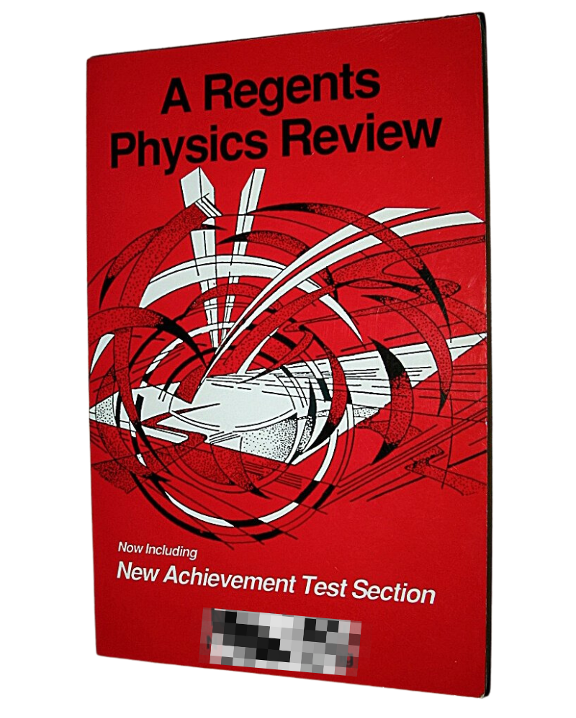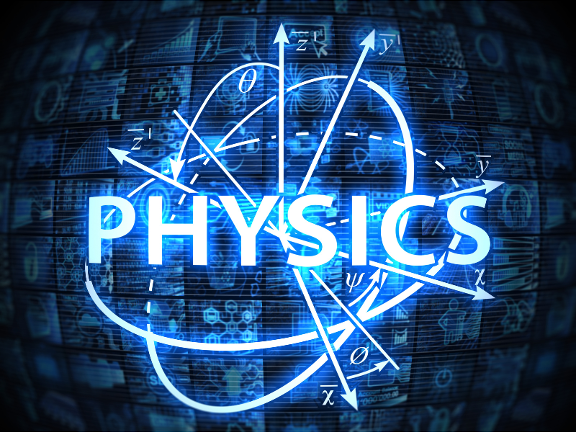As a child, I realized pretty early on which subjects I liked the most in school. Physical education and recess obviously topped the list. But when it came to the “core academic” subjects, there were a few clear favorites. As someone who declared she wanted to become an author when she was eight-and-a-half, perhaps not surprisingly, English, Creative Writing, or anything Language Arts were the winners. My next pick would be History/Social Studies. At the bottom of my list: Math (as you may recall from this earlier blogging masterpiece).
The one subject that I’d put in the middle was Science. As it turns out, my feelings about Science were highly dependent on the teacher and whether s/he gave a lot of homework. In high school, I didn’t mind Earth Science because the quirky, yet funny teacher reminded me of the comedian Steve Martin (for that, I’d overlooked the worm dissection unit). I couldn’t stand Chemistry (sorry, chemists, but I had a really mean teacher who seemed to hate teaching as much as he hated people). I was lukewarm on Biology (matter didn’t really matter to me, unfortunately).
In twelfth grade, my last year at Roy C. Ketcham High School, I had to take Physics. At this very moment, I can’t recall a single thing about the subject. Yet, it was in physics class that I learned something perhaps more important than the official curriculum.
Thanks to a Physics Regents Study Guide, I learned this valuable life lesson: applying your talents and abilities in unexpected ways can take you in some wonderfully unexpected directions. While this “physics eureka moment” benefited me when it came to physics class, it also helped me later in life.
Here’s what happened… 
Let’s get physics-cal
I have long forgotten much of what I’d studied in high school—though I suspect there are still a few things clanging around in my long-term memory. I certainly don’t have any recollection of my high school physics curriculum. (Just in case you’re curious, physics is generally the study of the concepts and problem-solving associated with energy and motion.)
What I do vividly remember is my physics teacher, Mrs. M.
Mrs. M was a petite, stout woman who sometimes wore those chunky, black-framed glasses that hipsters would now find quite fashionable. I recall that Mrs. M favored turtleneck sweaters in muted colors. Sort of like every knitted shade of fall. Mrs. M’s sweaters had thick stitching at the neck which reminded me of woolen prison bars. I suppose 1992 wasn’t the golden year of turtleneck sweater fashion, but the look suited her.
What I liked most about Mrs. M was her dry sense of humor—a personality trait I have always appreciated in others—and her honest approach to teaching.
For many of us, Physics was one of the last classes we’d need to pass before receiving a Regents diploma and moving on to college.
Mrs. M appreciated that most of us weren’t in her class for the love of science. Other than a handful of the most dedicated scholars, I’d say the majority of us were there just to check a box for graduation. While I applauded Mrs. M’s efforts to make the class interesting, I couldn’t seem to get into Physics.
That is, until the one day I got hooked. But I didn’t have my physics eureka moment in a way you would expect.

An important matter
First, let me set the stage. I recall that my physics eureka moment occurred sometime in the late fall. I know this because Mrs. M had already pulled out her chunky turtleneck sweaters.
The day that changed my view of Physics was the day that Mrs. M announced she was working on a side project: writing a Physics Study Guide for the Regents exam.
Now you may be saying, “Whoop-dee-doo. A Physics Study Guide. What’s the big deal?” Well, as it turned out for me, this study guide was a big deal. It was my physics eureka moment.
Perhaps I’m being overly dramatic, but I believe my future changed because Mrs. M needed help editing her study guide.
You see, Mrs. M was working on a very slim budget. She didn’t have a six-figure book deal or a team of publicists ready to promote her work in Popular Science or Scientific American.
Nope. It was just Mrs. M cranking out this Physics Study Guide on her own time, probably after she’d finished grading papers and poured herself a generous a glass of wine.

Let me “atom”
I distinctly remember Mrs. M’s recruiting pitch. She said: “I need editors for my Physics Study Guide. The only catch is that you can only work on it outside of school. But I’ll pay you a dollar for any mistakes that you find.”
Before she said, “I’ll pay you a dollar,” my hand shot up to volunteer. As I looked around the room, I couldn’t believe that I was the only person who raised her hand.
How could that be? Why didn’t my classmates want to turn into literary detectives, scouring this future masterpiece for errors and inaccuracies?
“No one else?” Mrs. M asked. I could sense the disappointment in her voice. We all looked around the room. I still had my hand up. After a moment, a boy named S raised his hand. He was one of the few kids who really liked science.
Suck up, I wanted to say. (I was no better, but anyway…moving along!)
Mrs. M passed out draft copies of her study guide to the two of us. I carefully studied the front cover.
While I would’ve spent the rest of the class admiring the book, Mrs. M resumed teaching as if she hadn’t just given me the most wonderful after-school assignment ever.
I couldn’t wait to get home and begin my fact (or mistake)-finding mission. It was in that physics eureka moment that I realized I could find joy in words just about anywhere.

The gravity of the situation
After racing through my homework, I cracked open Mrs. M’s study guide. I’ll admit, the content was a little dry. But, on page 7, I found my first spelling mistake. “Teh” instead of “The.” Eagerly, I circled the error with a black marker. I also folded down the corner of the page containing the offending misspelling. That’s one dollar. If I could insert the ka-ching sound effect of a cash register here I would.
A few pages later, I spotted a missing comma. Another dollar. After finishing five chapters of Mrs. M’s Physics Study Guide, my eyes started feeling heavy. Not wanting to miss any mistakes due to fatigue, I put the book down and called it a night. I was content with finding six errors.
The following day, I hurried into Physics before the bell rang.
“Mrs. M, I found six mistakes.” I waved the marker-stained, dog-eared pages of the study guide at her. Mrs. M studied my corrections.
“Hmmph,” Mrs. M said, as she flipped through my edits. With a quick nod of approval, Mrs. M rifled through her wallet and fished out six dollars.
I was in heaven.
S, who I believe went on to med school, only found one mistake (the “teh” that I had already found). He collected his dollar. Then—perhaps sensing my skill and enthusiasm—S capitulated. “Too much extra work,” he claimed.
I smiled discreetly. I was going to find all the mistakes myself! The lightbulb for my physics eureka moment hadn’t just flashed. It had exploded.
My early editing success confirmed what I must’ve already known deep down. Words—in any form, be it writing, editing, or reading—were going to be my calling.

Physics isn’t Bohr-ring
I won’t bore you with the details of my editing work. I’ll just tell you that when I finished Mrs. M’s study guide, she ended up paying me a whopping thirty-six dollars. I’m sure Mrs. M hadn’t intended to shell out all that money when she’d first asked for volunteers. But to this day, that thirty-six-dollar paycheck is one of the best paychecks I’ve ever earned.
Having that physics eureka moment was worth more to me than any dollar amount.
Editing Mrs. M’s study guide helped me realize something incredibly important: that the road to achieving your goals doesn’t have to be a straight line. And thanks to working on Mrs. M’s study guide, I didn’t fear the tangents, squiggles, or swirls that would guide what eventually became my “writing-related” career.
For me, that first editing job wasn’t about making money (though it was a nice perk for a kid). The real value came from the realization that I could use my passion for words in totally unexpected ways. It’s led me to some pretty amazing jobs throughout my career. I won’t discuss all of them here because you’ll probably read about them in future blogs.
And perhaps the best part about this life lesson? Despite spending the bulk of my time looking for mistakes, I somehow absorbed what I’d read in Mrs. M’s Physics Study Guide. Would you believe I ended up getting an A- in physics and passed the Regents exam with flying colors?
Though given that I ended up going to law school after college, I guess you could say at this point, it’s all relative.
What childhood experiences have you learned a life lesson from? Please share your stories with me in the comments section.










